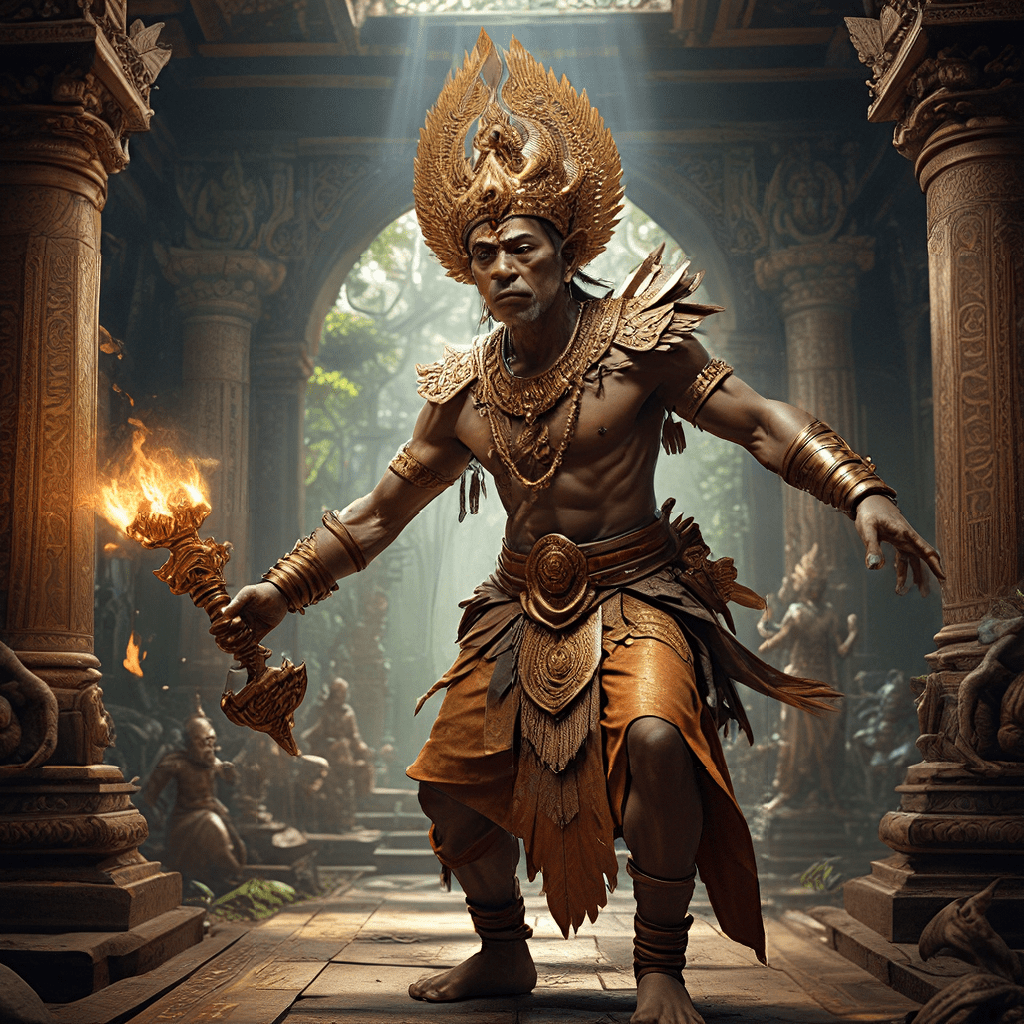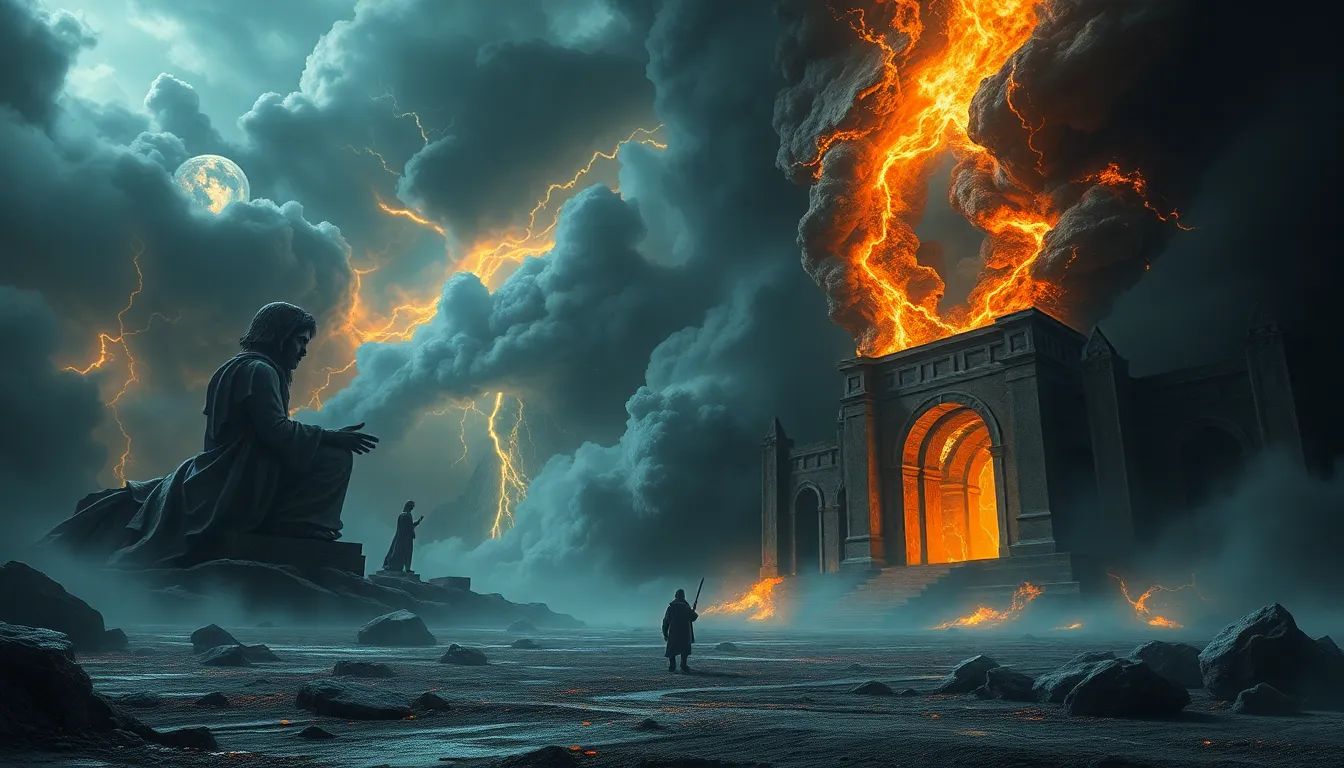The Great Cosmic War: Unveiling Mythological Showdowns
Introduction to the Cosmic War Concept
The concept of a Cosmic War is deeply embedded in mythological traditions across various cultures. It often refers to cataclysmic battles between powerful deities, supernatural beings, or primordial forces that shape the universe. These conflicts are not merely physical confrontations; they symbolize the struggle between order and chaos, good and evil, light and darkness.
Throughout history, mythological narratives have highlighted themes of cosmic battles, serving as allegories for human experiences, moral dilemmas, and the quest for understanding our place in the universe. Such stories invite us to reflect on our existence and the forces that govern it.
Historical Context of Cosmic Conflicts in Mythology
Ancient civilizations, from the Greeks to the Egyptians, constructed elaborate narratives surrounding cosmic conflicts that often paralleled their societal values and existential fears. These stories were not just entertainment; they helped individuals make sense of their world and the mysteries surrounding creation and destruction.
For example, in ancient Mesopotamia, the Epic of Gilgamesh explores themes of mortality and the struggle against chaotic forces, while in Hinduism, the narratives surrounding the Mahabharata reflect the complexities of dharma and cosmic order. A comparison of these themes reveals a universal human inclination to grapple with the fundamental questions of existence through myth.
Key Figures in Mythological Showdowns
Various deities and heroes play significant roles in these mythological showdowns, often embodying different aspects of humanity and nature. Here are some prominent figures:
- Zeus – The king of the Greek gods, representing order and justice.
- Thor – The Norse god of thunder, symbolizing strength and protection.
- Krisna – A key figure in the Mahabharata, embodying divine wisdom and strategy.
- Set – The Egyptian god representing chaos and disorder, often in conflict with Horus.
These figures are not just participants in battles; they carry profound significance within their respective mythologies, often representing the dualities of human nature and the universe itself.
The Titans vs. Olympians: A Greek Perspective
The Titanomachy, the battle between the Titans and the Olympian gods, is a central narrative in Greek mythology. This epic struggle lasted for ten years and culminated in the Olympians’ victory, led by Zeus, who overthrew his father Cronus and the other Titans.
This conflict is significant for several reasons:
- It established the Olympian gods as the ruling deities of the Greek pantheon.
- The war represented the transition from old to new, from chaos to order.
- It set the stage for the themes of fate, hubris, and divine retribution that permeate Greek stories.
The Titanomachy not only shaped Greek mythology but also influenced their culture, art, and philosophy, highlighting the importance of these cosmic conflicts in understanding their worldview.
The Battle of the Gods: Norse Mythology and Ragnarok
In Norse mythology, Ragnarok represents the ultimate cosmic showdown, where gods, giants, and various creatures confront each other in a series of cataclysmic events leading to the world’s destruction and subsequent rebirth. This battle is rich with symbolism and significance.
Key characters in Ragnarok include:
- Odin – The Allfather, who seeks knowledge and prepares for the coming battle.
- Thor – The god of thunder, who faces the serpent Jörmungandr.
- Loki – The trickster god, whose betrayal plays a crucial role in the unfolding events.
The implications of Ragnarok extend beyond mere destruction; they encompass themes of sacrifice, destiny, and the cyclical nature of existence, presenting a profound commentary on life and death.
The Hindu Epic: The Mahabharata and Cosmic Warfare
The Mahabharata is one of the longest epic poems in history, and it culminates in the great Kurukshetra War, a cosmic battle between two factions of a royal family. This war is not just a physical conflict; it is imbued with deep philosophical and moral dilemmas.
The role of divine intervention is pivotal in the Mahabharata, with characters like Krishna guiding the protagonists. Key themes include:
- The complexity of dharma (duty) and its impact on human relationships.
- The moral struggles faced by the warriors, questioning righteousness and justice.
- The exploration of fate versus free will, as characters navigate their destinies.
The Kurukshetra War serves as a microcosm of the human experience, reflecting the eternal conflict between good and evil, and the challenges of making ethical choices.
Creation Myths and Cosmic Conflicts
Many creation myths feature battles between primordial forces that shape the universe. These conflicts often symbolize the struggle between chaos and order. For instance:
- Enuma Elish – In this Babylonian creation myth, the god Marduk defeats the chaos monster Tiamat to create the world.
- Egyptian Mythology – The conflict between Set and Horus represents the struggle for order in the cosmos.
These creation stories emphasize that the universe is born out of conflict, reflecting the belief that order must continually be established against chaotic forces.
Cosmic Wars in Indigenous and Folk Mythologies
Indigenous and folk mythologies also feature cosmic conflicts, often reflecting the values and spiritual beliefs of the cultures they originate from. Stories such as the Māori creation narrative, which involves battles between gods and spirits, illustrate the significance of these conflicts in maintaining cultural identity and spirituality.
These narratives serve to:
- Connect communities with their past.
- Explain natural phenomena and human experiences.
- Provide moral and ethical guidance through allegorical tales.
Through these stories, we see that cosmic conflicts resonate deeply within the human psyche, transcending time and culture.
Modern Interpretations of Cosmic Wars in Popular Culture
The influence of mythological battles extends into modern literature, films, and video games. Contemporary adaptations often draw upon these epic narratives, reinterpreting them for new audiences. Notable examples include:
- Marvel Universe – The portrayal of gods and cosmic beings in a modern superhero context, particularly in films like “Thor” and “Avengers: Infinity War.”
- Anime – Series like “Attack on Titan” and “Fullmetal Alchemist” explore themes of conflict and moral dilemmas reminiscent of ancient myths.
These adaptations highlight the timeless nature of these stories, as they continue to shape our understanding of heroism, sacrifice, and the struggle against overwhelming odds.
Conclusion: The Legacy of Mythological Showdowns
The legacy of cosmic conflicts in mythology endures through storytelling, reflecting humanity’s continuous struggle with existential questions. These narratives remind us that the challenges faced by ancient deities and heroes parallel our own experiences as we navigate the complexities of life.
As we explore these mythological showdowns, we gain insights into our shared humanity, the nature of conflict, and the pursuit of meaning in an ever-changing universe. The great cosmic wars of mythology are not just relics of the past; they remain relevant in our understanding of the world and our place within it.




